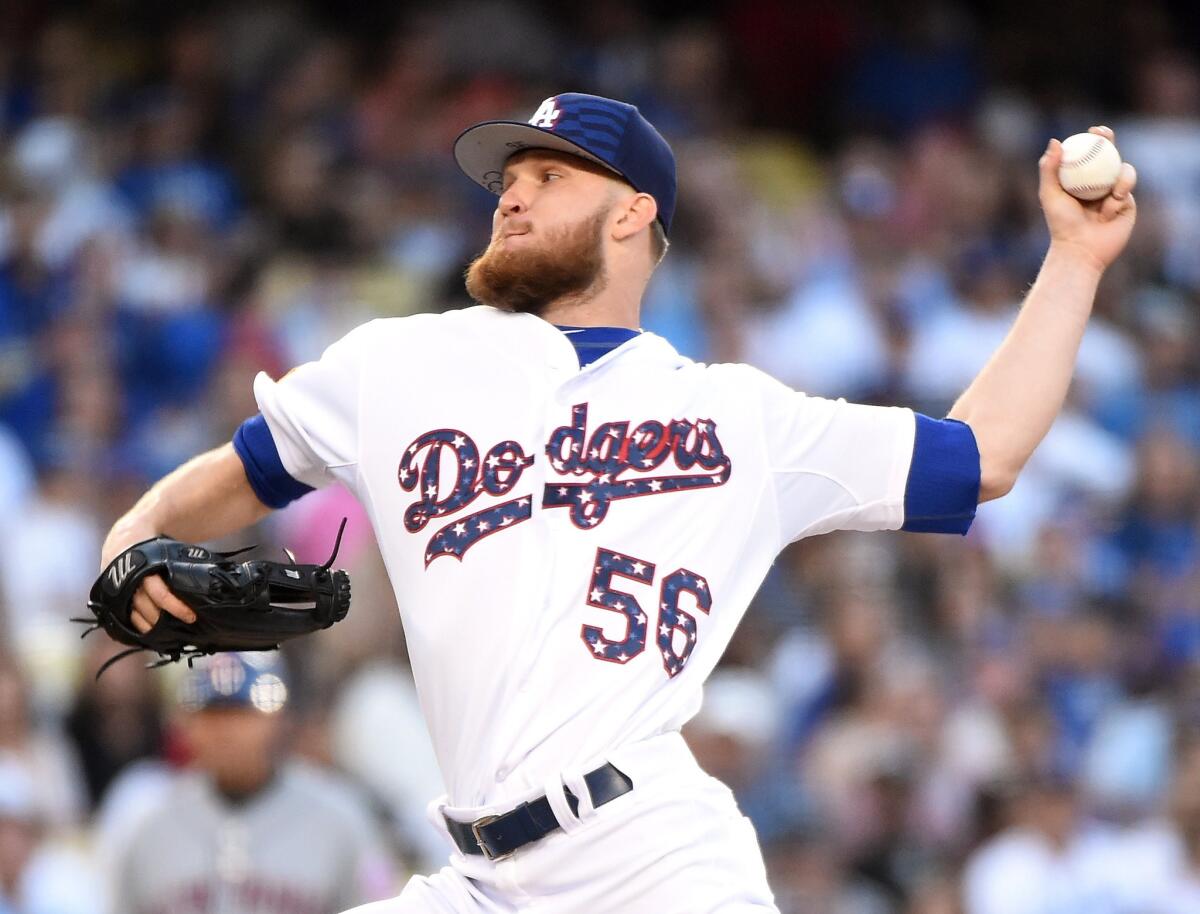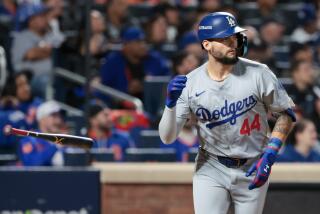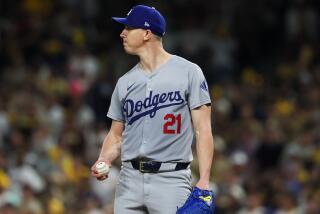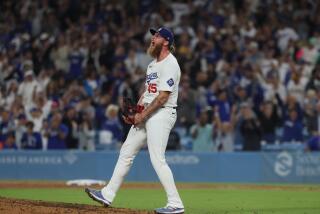Dodgers’ J.P. Howell is the team’s great relief secret

Dodgers left-hander J.P. Howell pitches against the New York Mets during the ninth inning of a game July 4 at Dodger Stadium.
- Share via
There’s this Dodger who has been remarkably effective the first half and somehow managed to go almost unnoticed.
When you’re putting together the kind of numbers J.P. Howell has, that should be next to impossible. So there he is, next to impossibly good through his first 33 games.
Right now Howell is only 4-1 with one save, a crazy 0.36 ERA and a 1.14 WHIP.
He has allowed exactly one earned run all season, and that was back on April 10, which means he has not allowed an earned run in his last 30 consecutive appearances. It’s one of the best runs of his 10-year career.
“Every year’s different for me, that’s the cool thing,” Howell said. “I’ve had times when it’s been different roles. This is a fun one because I’ve pitched in every single way possible, and I’ve really enjoyed that.”
Howell has pitched in the fifth, sixth, seventh, eighth, ninth and in extra innings. He’s come in to face one batter or throw as many as 1 2/3 innings. The left-hander has been equally effective against right-handed hitters (.224 average) as left-handed hitters (.222). He’s allowed only two extra-base hits all year, both doubles.
All this after a comparatively rocky start. He wasn’t being charged with runs early, but he was surrendering hits. In his first 11 games, opponents batted .375 against him. In his last 22 games, they’ve hit .145.
“I just kept grinding,” he said. “It was kind of early, and that’s how it happens. It’s hit or miss, and you adjust from there. It’s nice when it’s ‘hit’ early, but sometimes it’s not.”
It is right now. He and Kenley Jansen are the team’s two most reliable relievers. Twenty-three of his appearances have come in the eighth inning or later.
When you’re that good, that late, you tend to be noticed. Or at least should be.
Follow Steve Dilbeck on Twitter @SteveDilbeck
More to Read
Are you a true-blue fan?
Get our Dodgers Dugout newsletter for insights, news and much more.
You may occasionally receive promotional content from the Los Angeles Times.









